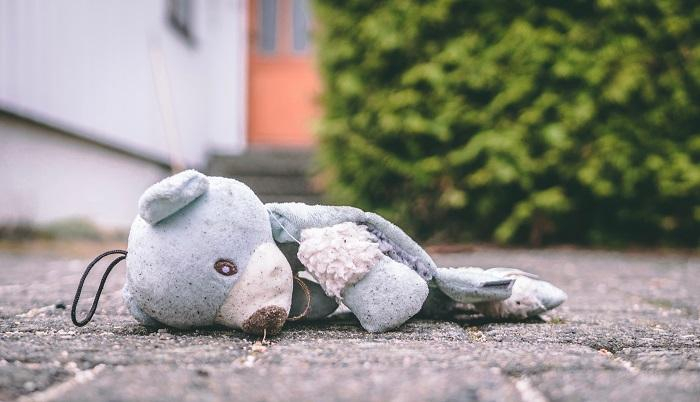Recognizing the Signs of Child Sexual Abuse - An Interview with Shariea Shoatz
Lifestyle
|
Feb 15, 2019
|
4 MIN READ

When children experience trauma or severe life stressors, it is not uncommon for their lives to unravel. Fear of people, places or objects, speech impediments, and even delays in their physical, emotional, and academic growth are all signs that something is wrong. Child sexual assault educator Shariea Shoatz believes that all children’s voices need to be heard. She also knows that most children who suffer from abuse are afraid to speak. Her passion is to support these survivors, and teach the adults who care for them the signs of, how to prevent, and end childhood sexual abuse.
For all this and more, we want to honor Shariea as our Featured Muslimah this month.
View this post on InstagramA post shared by Shariea Shoatz (@shariea_shoatz) on Jan 28, 2019 at 9:41am PST
Shariea holds a Master’s Degree in Special Education from Cheyney University of Pennsylvania and an Early Childhood Certificate from Lincoln University. She has taught special needs children in classrooms and homes throughout Delaware, New Jersey, Pennsylvania and overseas and is authoring a book about body safety for children that will pre-launch in this month. You should also look out for her other book, Buddy Speaks, the story of one brave boy who, after suffering at the hands of an abuser, got his voice back and became a voice for other children who suffer from childhood sexual abuse and PTSD.
Layla Abdullah-Poulos spoke with Shariea for Haute Hijab about her work with children who suffer from trauma because of sexual abuse.
Childhood trauma is a constant fear for most parents, none more so than sexual abuse. The statistics are plain scary. According to RAINN, protective service agencies find evidence of child sexual abuse every 11 minutes (57,329 children in 2016), which is restricted to reported cases.
The majority (82 percent) of victims are girls, with 1 in 9 (1 in 53 boys) under the age of 18 subjected to sexual abuse at the hands of an adult. Female teens are four times more likely to be victims of rape, attempted rape or sexual assault between the ages 16-19.
Most victims know their abusers: More than half of reported cases involve an acquaintance, one-third involves a family member. Children and teens are not safe from child sexual abuse in Muslim spaces, including faith-based ones like masajid or Muslim schools. It becomes essential for parents to consider ways to protect children as well as learn about ways to respond to reported abuse.
“A child’s disclosure of sexual abuse can be daunting to parents,” explains child sexual assault educator, Shariea Shoatz.
“Most parents blame themselves for not protecting their child and in many cases are not certain how to respond when abuse is disclosed.”

The stark realization that one's child is a victim leaves many parents reeling and clueless as to how to respond or engage in corrective actions to promote healing. Shoatz advises parents and caretakers to remain calm.
“Parents should not criticize or place the blame on the child regardless of their involvement. Avoid over-questioning the child or demanding details of the abuse. In all cases of disclosure, we should avoid the following questions that imply that the child was at fault:"
She adds that revealing sexual trauma is emotionally-wrenching for victims, requiring a level of trust that makes it critical not to inflict more.
Shoatz offers tips for parents or anyone who a victim tells about their abuse.
Getting Help
Some parents may want to keep the abuse hidden, which will result in the victim not being helped and leaves other children vulnerable to future abuse by the perpetrator.
Shoatz encourages parents to prepare and secure their child’s emotional well-being by interacting with outside agencies to protect the victim and other children.
“Always remember,” says Shoatz, “it is the responsibility of adults to act and keep children safe.”
Shariea Shoatz is the founder of Buddy Speaks, a grassroots organization dedicated to prevention education, empowerment, and awareness to help end childhood sexual abuse. You can find information about their workshops on Facebook @BuddySpeaks or IG at @Buddy_Speaks You can also follow Shoatz on Facebook @SharieaShoatz and IG @Shariea_Shoatz
Layla Abdullah-Poulos is a history adjunct, award-winning writer and managing editor for NbA Muslims. She has published several short stories in collections and a romance novel.
Subscribe to be the first to know about new product releases, styling ideas and more.
What products are you interested in?

